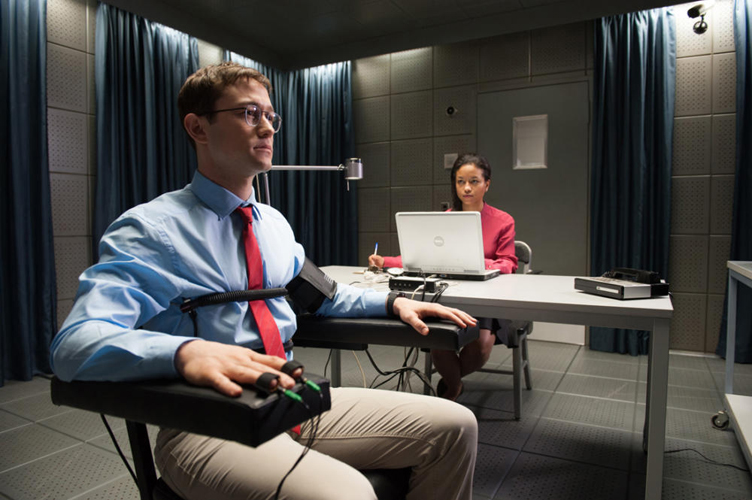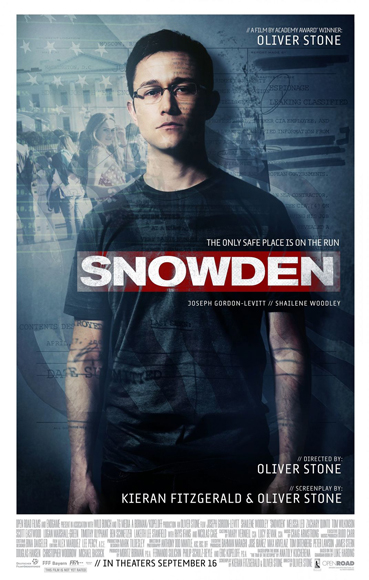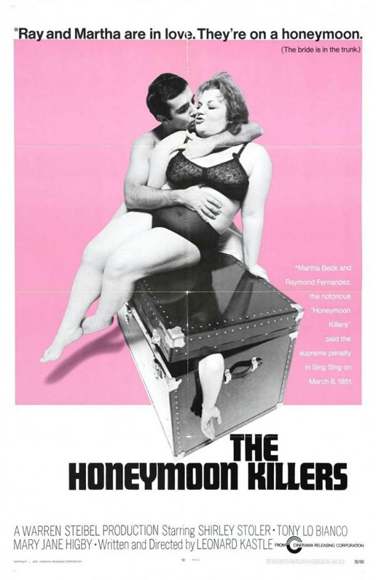
By Robin E. Simmons
NOW PLAYING:
The first thing I did when I got home after watching “SNOWDEN” at the newly refurbished Mary Pickford Theater was to stick a piece of masking tape over the camera lens of my laptop computer. I love paranoid thrillers and I’m a big fan of Oliver Stone’s movies. He’s like a modern left-leaning Shakespeare who dramatizes real world politics for our collective enjoyment and continued conversation. Several years ago, a friend who was a career intelligence officer confided to me that there was no place on the planet to hold a truly private conversation. I found that frightening. Is privacy essential to our desire for both freedom and security? Is it unreasonable to assume we can expect to have true nation-wide security without privacy? I have no answers, but the question itself is a flashpoint in today’s volatile world of rampant terrorism. I know some people who welcome total surveillance because as they are quick to say, “If you’re not up to anything evil why worry about surveillance? But is it really as simple as that? What if we had total transparency among all governments? What if everyone knew everything? No secrets. Would we all be safer? For me, the very idea that we willingly and eagerly surrender our privacy for the perception of added security is unsettling and sickening.
I am aware that many people think of Edward Snowden as a national hero for revealing the massive phone tapping on American citizens by the NSA. Surely there must be other ways to track those who wish to do us harm.
 In Stone’s compelling new film, Joseph Gordon Levitt plays a troubled Edward Snowden who can’t be content as long as he harbors and facilitates this ongoing cyber snooping as a required part of his job description. Snowden considers himself a true patriot and Stone seems to agree. I like how this knowledge creates a rift with his girlfriend and how it troubles him and impacts his moral compass. The weight of this secret is nicely portrayed and it at the heart of the drama.
In Stone’s compelling new film, Joseph Gordon Levitt plays a troubled Edward Snowden who can’t be content as long as he harbors and facilitates this ongoing cyber snooping as a required part of his job description. Snowden considers himself a true patriot and Stone seems to agree. I like how this knowledge creates a rift with his girlfriend and how it troubles him and impacts his moral compass. The weight of this secret is nicely portrayed and it at the heart of the drama.
The central turning point is when Snowden decides NSA’s illegal surveillance techniques must be leaked to the public. Stone’s truly thrilling movie does justice to the two threads of the story: Snowden’s personal life and the technology involved in the government’s over-reaching, illegal, phone surveillance.
I was much more intellectually stimulated than I was emotionally moved, but even so, this may be Stone’s best and most relevant movie. Even if you consider Snowden a traitor, it’s worth spending time considering or reconsidering this timely tale that one way or another touches all of us living in the web of the cyber world we have created to our advantage and perhaps peril.
Perhaps the bigger question is why aren’t we as frightened and horrified as Snowden.
If you saw Laura Poitras’ terrific documentary “Citizenfour,” you will enjoy Oliver Stone’s wonderful companion piece. It’s a movie that illuminates our troubling times in ways that only cinema can do. Highest recommendation.
NEW FOR THE HOMER THEATER:
In Mobile, Alabama, lonely nurse Martha (Shirley Stoler) takes care of her invalid mother. Starved for affection, she takes out an ad in a lonely-hearts column and soon receives a letter from Ray (Tony Lo Bianco). They meet and run off — with her dowry — to New York City. Martha puts her mom in a nursing home and follows the good-looking hustler on the road, agreeing to pose as his sister. In a flash, the two go on a crime spree fleecing lonely, unsuspecting women. Only problem is Martha’s jealousies of Ray’s victims leads to murder. In Michigan, an elderly matron is killed and her child is drowned in a washing machine. For a time, Martha considers confessing to the police but finally realizes Ray will never be true to her — or any other woman. This sensationally grotesque tabloid story is based on actual events. In 1951 the real-life couple were executed in Sing Sing. I love the way unknown writer/director Leonard Kastle utilizes a stark, almost minimalist documentary style. It certainly imbues this sordid story with an aura of authenticity and further locks in it’s secure position as a beloved cult classic of American cinema.. The persistent rumor is that Martin Scorsese set up the two opening shots but did not stay on as director. Criterion. Blu-ray
Comments? RobinESimmons@aol.com












































